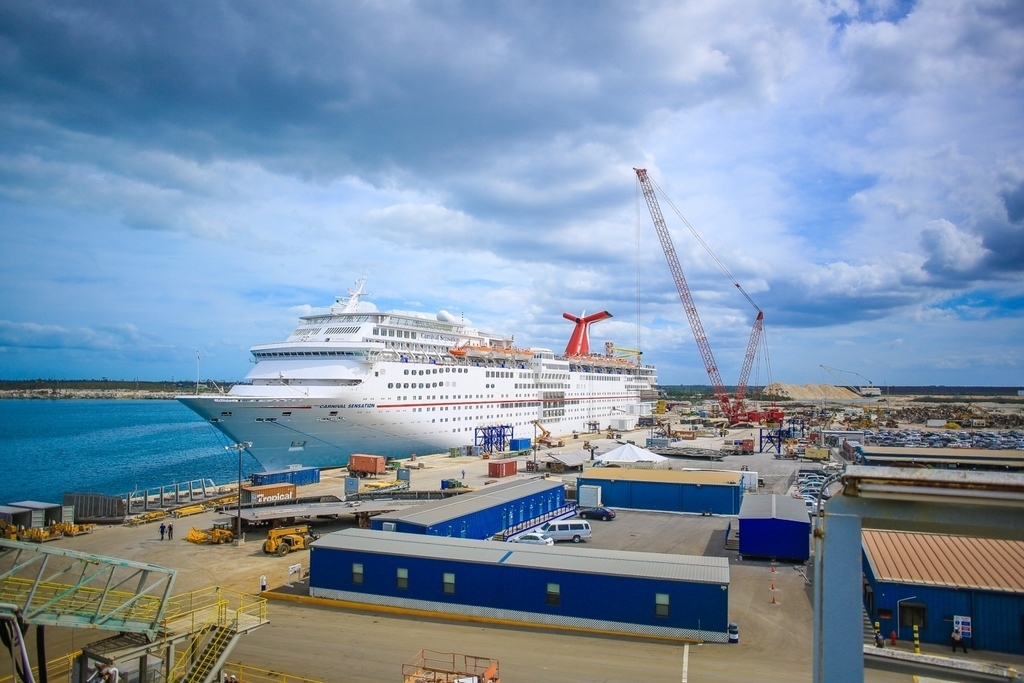The cruise industry could be looking at a monumental impact to their operations following Hurricane Dorian if the Grand Bahama Shipyard’s capacity is taken offline or further limited following an April incident.
The go-to-yard for drydocks and refurbishments in the cruise industry is partly owned by both Carnival Corporation and Royal Caribbean Cruises.
It is ideally located in the Bahamas, meaning little out-of-service transit time on the way to or from various deployment regions, including the Caribbean in the winter.
The yard is regularly used by cruise vessels from almost all cruise lines for mandatory class drydockings and refurbishment work.
There are few alternatives for big vessels in the region. Shipyards in Newport News, Virginia, and Mobile, Alabama, both have facilities that can handle larger vessels, but are generally used for naval purposes and are known to be well booked ahead of time.
Deytens, located in South Carolina, has also played host to expedition and luxury ships and mid-sized vessels over the years.
Costs at U.S.-based facilities are also higher, and there are challenges in bringing in skilled labor and large amounts of hotel and marine supplies from foreign countries that are needed for large scale refurbishments, which often see spending of up to $3 million per day in supplies and labor.
With reported widespread damage in Freeport, operations to the yard could be impacted. Housing both permanent and temporary workers could prove challenging unless accommodation vessels are brought in.
Another expensive option could be the Boka Vanguard, a semi-submersible heavy transport vessel operated by Netherlands-based Boskalis, which helped provide a platform for emergency repairs to the Carnival Vista earlier this year.
In Curacao, Damen Shipyards offers a drydock option and has plenty of cruise experience.
Cruise lines could also chose to wet-dock their vessels at industrial piers just about anywhere. The upside being the vessel would be empty and available for hotel refit. Crane access could be limited making logistics of getting supplies off and on the ship challenging.
However, classification societies require ships come out of water at regular intervals for inspection.
The most likely option, however, are the regular drydock facilities in Europe. The question is whether they have available space when needed, and the impact of moving ships that were scheduled to drydock in the Bahamas to Europe, mixing up some itineraries and deployment.
Cancelling a scheduled drydocking for the third or fourth quarter of 2019 or early 2020 and replacing it with a normal sailing would also pose challenges with a short booking window.




